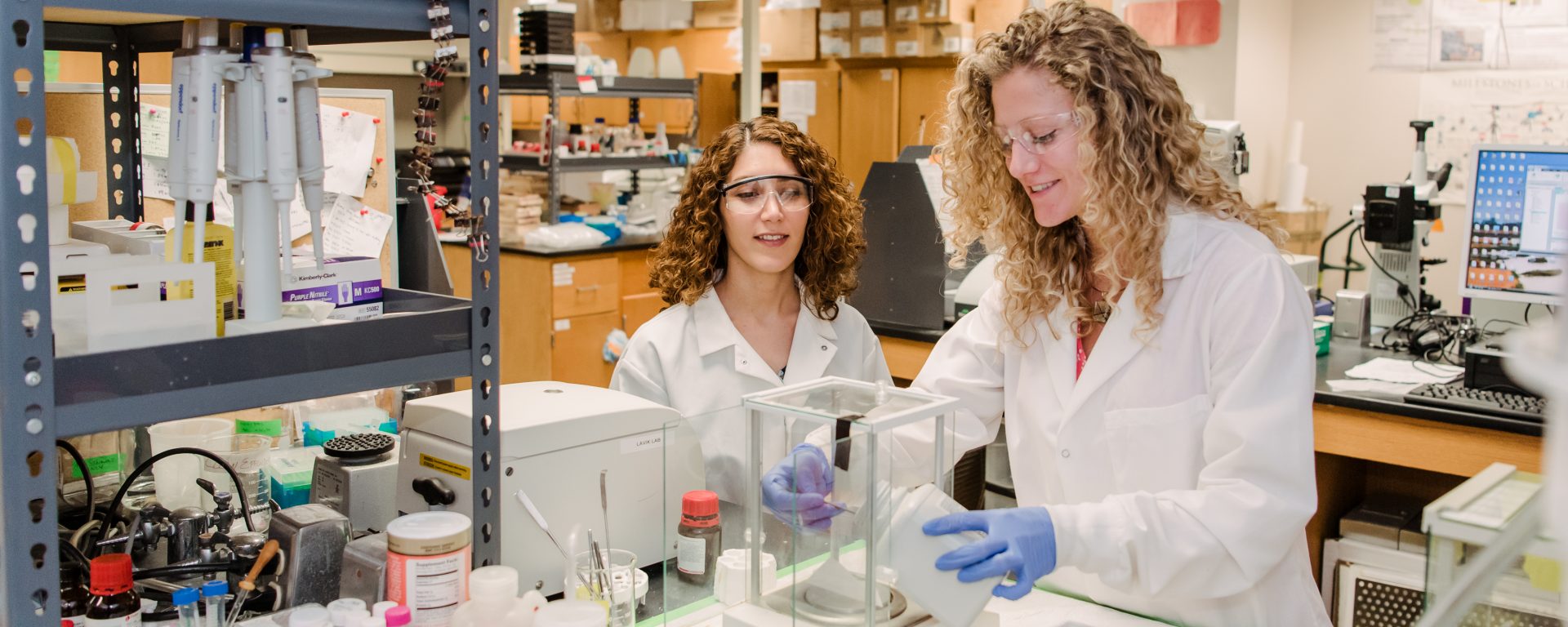
Overview
The Ph.D. degree is geared towards successfully mastering a body of skills and knowledge in preparation for a career as an independent scholar. This degree is recommended for those who expect to engage in a professional career in research, teaching, or technical work of an advanced nature.
The Ph.D. degree is awarded only upon sufficient evidence of high attainment in scholarship and the ability to engage in independent research in the field of chemical engineering.
The basic components to earn the Ph.D. degree are:
- Completion 21 credits of graduate coursework, including 12 credits of core curriculum
- Successful completion of written qualifying report and oral presentation
- Successful preparation and oral defense of a written dissertation proposal
- Minimum of 18 credit-hours of doctoral dissertation research (ENCH 899)
- Public oral defense and submission of written doctoral dissertation
Required Prior Coursework
Applicants to the Chemical and Biochemical Engineering graduate programs should ensure prior coursework covers the topics listed for the courses below. Top applicants have grades of a ‘B’ or above in courses covering these topics:
- Multivariable Calculus (MATH 251)
- Organic Chemistry (CHEM 351)
- Differential Equations (MATH 225)
- Thermodynamics or Physical Chemistry (ENCH 300 (preferred), CHEM 301 (preferred)
Students looking to pursuing an CENG PhD are not required to have an undergraduate degree in an engineering discipline. All applicants, no matter what undergraduate degree one has completed, must have earned a B or better courses covering the topics listed above.
Research
Students seeking a Ph.D. are also required to pass a written qualifying examination. The PhD candidate must take at least 18 hours of doctoral dissertation research (ENCH 899) and produce a dissertation that demonstrates a significant contribution to the state-of-the-art in the topic selected. The Ph.D. dissertation committee is required to include at least one external member. There is a residency requirement for Ph.D. students and a qualifying exam and dissertation proposal defense are required for candidacy to the Ph.D. program.
Faculty Research Areas
Kelsey Gray – Ph.D. Student Chemical and Biochemical Engineering
Coursework
The completion of a minimum of 21 credit-hours of graduate courses beyond the bachelor’s degree. The core curriculum includes 12 credits of coursework. Courses taken to fulfill the requirements of the program must be approved in advance by the Chemical Engineering graduate program director and by the student’s advisor, if one has been selected. Appropriate courses taken while earning the M.S. degree from the program may be used to partially fulfill this requirement. Course descriptions are found in the UMBC Course Catalog. A grade point average of 3.0 in all courses must be maintained to remain in good standing with the Graduate School.
CENG Core Curriculum
These four courses must be completed before a PhD student advances to candidacy.
- ENCH 610 Chemical Engineering Thermodynamics
- ENCH 620 Methods of Engineering Analysis
- ENCH 630 Transport Phenomena
- ENCH 640 Advanced Chemical Reaction Kinetics
Learn More
Admission requirements and procedures correspond to the requirements set forth by the UMBC Graduate School. Information on our Fee Free Application available here.